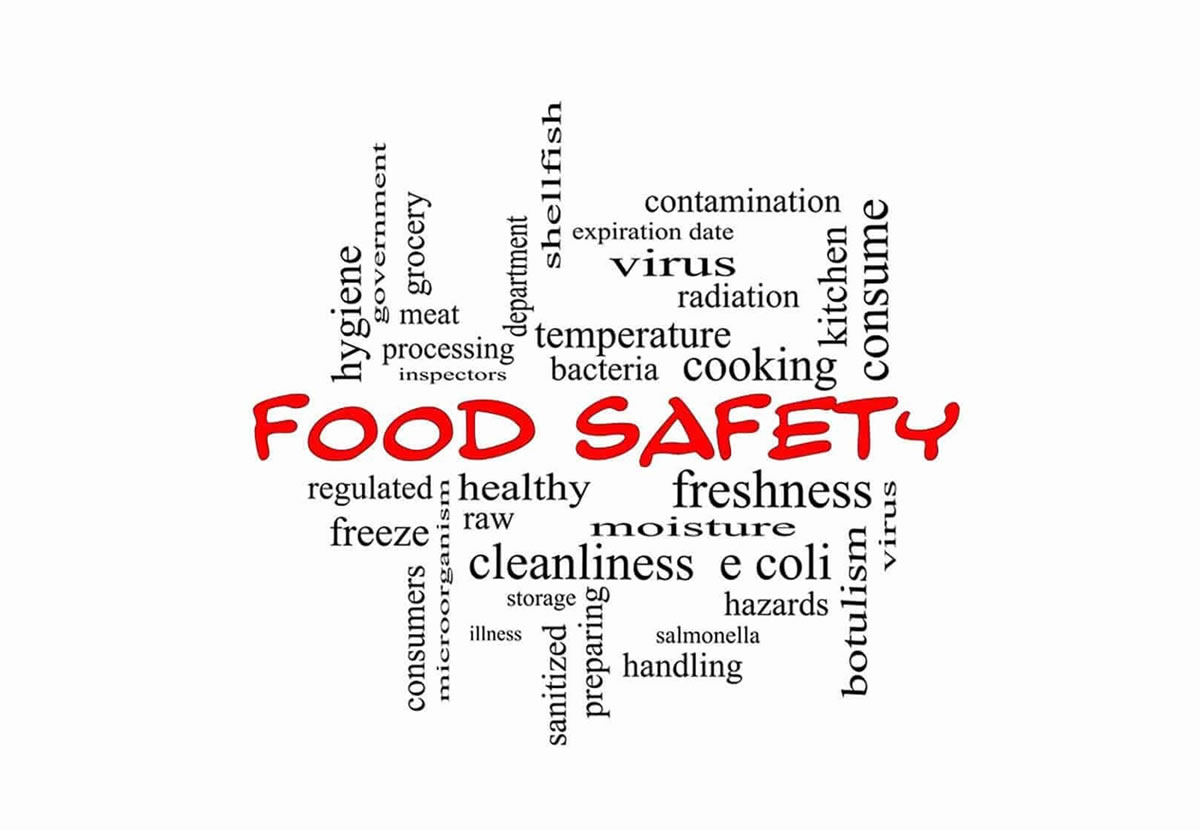Food And Safety 102
Part 2: Advanced Food Safety Practices
6. Avoid Cross-Contamination
Cross-contamination can occur easily in the kitchen, but it can be prevented with careful handling:
– Be cautious with food and surface contact. Wash and sanitize cutting boards, utensils, and countertops when they come into contact with raw meats, eggs, or seafood.
– Be mindful of the order in which you prepare food. Start with foods that require no cooking or the least amount of cooking and work your way to foods that require higher temperatures.
– Do not use the same plate or utensils for raw and cooked foods without proper cleaning.

7. Use Safe Water
The quality of the water you use in cooking is just as important as the food itself. Ensure that the water you use for cooking and drinking is safe. If you have concerns about the quality of your tap water, consider using filtered or bottled water to avoid any risk of contamination.

8. Practice Safe Food Handling
When handling food, avoid touching your face, hair, or other parts of your body. If necessary, use gloves to maintain hygiene. Proper food handling practices minimize the risk of contamination and ensure the food remains safe to eat.
9. Be Mindful of Leftovers
Leftovers can be a breeding ground for bacteria if not handled properly:
– Refrigerate leftovers within two hours of cooking.
– Label them with the date so you can keep track of how long they’ve been in the fridge and consume them within a safe time frame.
– Use airtight containers to store leftovers to maintain their freshness and safety.

10. Understand Expiration Dates
Pay attention to “sell by,” “use by,” and “best before” dates on food packaging. Regularly check and respect expiration dates on food items. Dispose of anything past its prime to avoid health risks. Expiration dates are there to help you know the shelf life of food products.

11. Be Allergy-Aware
Food allergies can be life-threatening. If you or someone you’re cooking for has food allergies, be vigilant about cross-contamination and check food labels for allergen information. Awareness and careful preparation can prevent allergic reactions.
12. Learn About Foodborne Illnesses
Familiarize yourself with common symptoms of foodborne illnesses, such as nausea, diarrhea, and vomiting. Knowing when to seek medical attention if you suspect you’ve consumed contaminated food is crucial for your health.

13. Use of Gloves
While using gloves in the kitchen is essential for hygiene and food safety, improper use can pose risks. Always remember to change gloves frequently to prevent cross-contamination. Sometimes, it’s best to rely on clean hands and thorough hand washing to maintain kitchen safety and cleanliness

14. Stay Informed
Keep yourself updated on food recalls and safety guidelines from reputable sources. Staying informed about potential risks ensures you are always practicing the best food safety habits.
15. Use Your Senses
If something looks or smells off, it’s safer to discard it. Your senses are valuable tools in detecting food that might be unsafe to eat. Common sense plays a crucial role in ensuring food safety

Remember, food safety is a fundamental aspect of cooking, and practicing good food safety is essential to protect your health and the health of those you’re cooking for. Following these basic principles will help you create safe and delicious meals in your kitchen. As you gain experience, you can build on these principles to become a more proficient and safe cook.
–AUNTYRUMÉ✨💜





